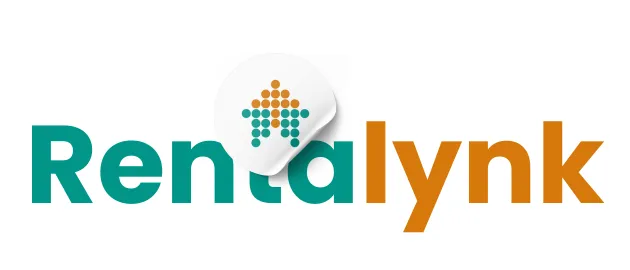Introduction
Sustainable real estate development is gaining traction in Africa as the continent faces increasing environmental challenges and the need for resilient infrastructure. The real estate sector plays a crucial role in shaping sustainable urban environments and addressing climate change.
One of the primary drivers of sustainable real estate development is the growing awareness of environmental issues among governments, developers, and communities. Sustainable practices help reduce the environmental impact of construction and building operations, contributing to the conservation of natural resources.
Green building materials are becoming more prevalent in the African real estate market. These materials, such as bamboo, recycled steel, and sustainable timber, offer eco-friendly alternatives to traditional construction materials. Using green materials can reduce carbon footprints and promote resource efficiency.
Energy efficiency is a key aspect of sustainable real estate development. Incorporating energy-efficient designs, such as solar panels, LED lighting, and passive cooling systems, can significantly reduce energy consumption and lower utility costs for residents. Renewable energy sources are also being integrated into real estate projects to promote sustainability.
Water conservation measures are essential for sustainable development in water-scarce regions of Africa. Implementing water-saving technologies, such as rainwater harvesting, low-flow fixtures, and greywater recycling, can help reduce water usage and ensure a reliable supply of clean water.
Sustainable urban planning is crucial for creating resilient and livable cities. Planning must consider factors such as population density, transportation, access to green spaces, and waste management. Integrated urban development plans can ensure that sustainability is a core principle of real estate projects.
The adoption of smart building technologies is transforming the real estate sector in Africa. Smart buildings use sensors and automation to optimize energy use, enhance security, and improve occupant comfort. These technologies can also provide real-time data for better building management and maintenance.
Community engagement is a vital component of sustainable real estate development. Involving communities in the planning and decision-making process ensures that projects meet local needs and preferences. Community-driven initiatives can foster a sense of ownership and responsibility, leading to more sustainable outcomes.
Public-private partnerships (PPPs) are essential for financing and implementing sustainable real estate projects. Collaborating with the private sector can bring in investment, expertise, and innovation, while government support can provide regulatory frameworks and incentives. PPPs can help scale up sustainable practices and create impactful projects.
Education and awareness programs are crucial for promoting sustainable real estate development. Training and capacity-building initiatives can equip developers, architects, and construction workers with the knowledge and skills needed to implement sustainable practices. Public awareness campaigns can also encourage sustainable living among residents.
Policy and regulatory support is vital for advancing sustainable real estate development in Africa. Governments can implement building codes and standards that promote energy efficiency, green building materials, and sustainable design. Incentives such as tax breaks, grants, and subsidies can further encourage developers to adopt sustainable practices.
Sustainable real estate development offers significant economic benefits. Energy-efficient buildings have lower operating costs, which can attract tenants and buyers. Green buildings also have higher resale values and can enhance the reputation of developers and investors. Sustainable projects can contribute to job creation and economic growth.
The integration of nature-based solutions is becoming more common in real estate development. Incorporating green roofs, urban forests, and natural water management systems can enhance biodiversity, improve air quality, and provide recreational spaces for residents. These solutions contribute to the overall sustainability and resilience of urban areas.
Health and well-being are important considerations in sustainable real estate development. Designing buildings and communities that promote physical and mental health, such as providing access to natural light, green spaces, and recreational facilities, can improve the quality of life for residents and reduce healthcare costs.
Sustainable real estate development also addresses social equity by providing affordable and accessible housing options for all income levels. Inclusive housing policies ensure that low-income families have access to safe and healthy living environments, reducing inequality and promoting social cohesion.
Technological advancements are driving innovation in sustainable real estate development. Digital platforms and tools enable better planning, design, and management of real estate projects. Technologies such as Building Information Modeling (BIM) and Geographic Information Systems (GIS) can optimize resource use and improve project outcomes.
Sustainable real estate development requires a holistic approach that considers environmental, social, and economic factors. Collaboration among stakeholders, including governments, developers, communities, and financial institutions, is essential to create integrated solutions that address multiple challenges simultaneously.
The role of international organizations and donors is significant in supporting sustainable real estate development in Africa. These organizations can provide funding, technical assistance, and best practices from other countries to help African nations overcome their sustainability challenges.
Monitoring and evaluation are critical for ensuring the success of sustainable real estate projects. Regular assessment of environmental, social, and economic impacts can provide valuable insights and inform future strategies. Data-driven approaches can help identify successful models and areas for improvement.
Rentalynk supports sustainable real estate development by connecting stakeholders and providing access to a comprehensive database of sustainable properties. The platform offers tools and resources for planning, financing, and managing sustainable projects. By fostering collaboration and innovation, Rentalynk helps advance sustainable development in Africa.
Rentalynk Solution
Rentalynk connects stakeholders and provides tools and resources for planning, financing, and managing sustainable real estate projects in Africa.

